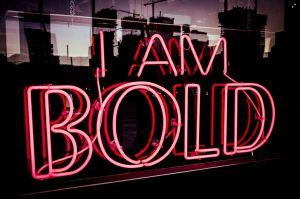
Table of Contents
ToggleLED (Light Emitting Diodes) neon signs have been gaining recognition as the go-to choice for businesses seeking eye-catching, effective signage. With the advent of LED technology, traditional glass neon signs have taken a backseat. This article will explain 15 reasons why LED neon signs triumph over glass neon signs.
LED and glass neon signs boast different constructions and functionalities. LED neon signs are composed of a series of closely positioned LEDs that emit a steady glow, a stark contrast to the flickering of glass neon lights. The LEDs are enveloped in a protective, flexible, and lightweight polymer, making them less frail than the glass tubes found in glass neon signs.
LED neon signs are celebrated for their energy efficiency, using approximately 15 times less electricity than glass neon signs. This can lead to substantial savings on your energy bills in the long run.
LED neon signs offer creative flexibility that a glass neon sign cannot match. They allow for color changes, fading, flashing, and intricate design formation, leading to a more dynamic and engaging visual display.
LED signs offer consistent brightness, ensuring they are visible from afar. They can also be dimmed to suit different lighting conditions, offering greater control over your energy use.
LED signs offer an almost infinite color palette, enabling accurate representation of your brand’s image.
LED signs are straightforward to maintain, clean, and replace if necessary. Unlike glass neon signs, they do not need a professional for gas replacements.
LED signs have an impressive average lifespan of over 100,000 hours, in comparison to the 30,000-hour lifespan of glass neon signs. They are also more resilient to weather events, making them suitable for outdoor display.
LED neon signs are safe to touch even when switched on, unlike the gas filled glass neon signs that can become extremely hot. Their durability reduces the risk of breakage and related hazards.
LED signs, due to their flexibility and lighter weight, are easier and quicker to install than traditional glass neon signs. This ease of installation can result in additional cost savings.
LED signs can save you up to 70% or more in energy costs compared to traditional glass neon signs.
With their lower energy consumption and longer lifespan, LED signs are a more eco-friendly choice. They offer superior efficiencies due to the low-voltage that LED needs to work, when compared to the electricity needed for glass signs filled with neon gas.
LED neon signs emit a cool, modern light, while glass neon signs produce a warm, retro glow. Depending on your brand’s vibe, one might be more suitable than the other.
LED signs are more robust than glass neon signs. They can withstand bumps and knocks without breaking, making them a more durable choice.
Over their lifespan, LED neon signs have a lower operating cost than traditional glass neon signs, thanks to their lower energy consumption, longer lifespan, and lower maintenance requirements.
Owing to advancements in technology, LED signs have become more affordable, making them a more viable option for businesses.
In conclusion, while traditional glass neon signs have their charm, LED neon signs offer numerous benefits in terms of energy efficiency, versatility, brightness, color variety, longevity, safety, and cost-effectiveness. If you’re planning to invest in signage for your business, LED neon signs are undoubtedly worth considering.
For more detailed information, here is a deeper dive into the comparison between glass neon vs LED neon.
Glass neon signs are older, traditional, neon signs which are made from glass tubing filled with neon or argon gas. Gas neon signs were invented in the early 1900’s and persisted to their peak in America in the late 1960’s – if you picture New York’s Time Square with the bright neon lights, these were all glass neon signs.
Several reasons – neon signs lasted quite a while and mass production of neon signs probably started to wane in the 1950’s based on the cost of neon and how fragile glass neon signs are.
Glass neon signs have been replaced with modern LED neon sign – a far superior technology, which is safer, cheaper, more energy efficient and far brighter than traditional glass neon signs.
Yes – LED neon signs consume about 1/4 to 1/3 the amount of electricity as glass neon gas signs.
Yes – LED neon signs are safe to send in the post, far less fragile than glass neon signs, and do not require or rely upon a gas in the tubing to create the light.
Yes – LED neon signs don’t have gases, and use far less power than traditional gas and glass neon signs.
LED neon lights are far brighter than gas neon signs. They last for longer, and don’t dim or lose brightness with time. They also don’t require regasing of the glass tubes with more gas due to gas loss.
Christopher is our main author, with over 10 years working with businesses and consulting online. Christopher has a deep understanding of LED lights, LED neon flex, and neon signs and how they can be best used to help business, home, and event decor.






Neon By Design is America’s best LED neon sign maker that focuses on custom LED neon signs for business, home and event décor.
Neon By Design
171 Branham Ln
Ste 10 POB 1059
San Jose
CA 95136